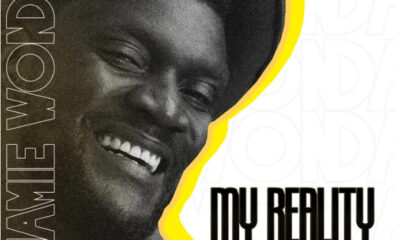
Unlike just playing your instrument (which is hard enough), composing music demands you put your emotions, state of mind and perspective on record and present it to the world saying, “Here world. This is me. This is who I am.”
And unlike an improvised solo, which is over in a flash, a composition leaves a permanent mark of who you were at the time of writing.
This is scary shit. And it causes a lot of resistance.
I’ve had numerous questions recently about how I compose so I thought I’d share a few bits of my process.
Tyler writes:
“I’m a big fan of your music and was wondering what inspires your compositions or if you have any tips to composing. I’m a sax player trying to write in the same genre as you but I get stuck. Thanks man.”
and Sam writes:
“I love composing, and I’m really looking to develop in that area. This got me thinking: how do you go about writing tunes, and what techniques do you apply to your own compositions?”
Whew…where to start? Ok. Here are a few ideas;
1. Movement. I almost always get ideas while walking. (This is an old trick. Beethoven used to walk each morning before sitting down to write.)
2. Bass lines. Sometimes tunes start with a melodic bass line (lots of the Can’t Wait for Perfect material started that way).
3. Tiny melodies. A melodic motif or a combination of 2 chords often gets the ball rolling for me.
4. Balance. Much of composing for me is trying to balance the more-pop-than-jazz chord progressions I favor with the sophisticated “jazz” harmonic textures I know and love. Many times, for me, it’s not that I choose chords that are “out” or difficult, per se, but rather I find unique ways to combine and arrange more “common” chord types.
5. Be like Wayne. I like Wayne Shorter’s melodic approach to writing. There’s often a singable melody with sophisticated harmonic movement, but also a sense of keeping one thing the same while changing something else. (Static melody note hangs over two diatonically unrelated chords, etc.)
6. Listen to what you love. Never fails. I put on some music that moves me (genre agnostic) and the ideas start flowing.
7. Groove, beats and pocket. I like love grooves.
8. Rich harmonic movement. I like cool chord progressions (cool being subjective to personal taste), but think Pat Metheny. I love chords moving tertiary (in thirds, vs. traditional cycle fourth movement). Try moving constant-structure chords (Berklee-speak for a chord that remains the same as it gets moved around. Ex.: Cmaj7 / Emaj7 / Dbmaj7) around in minor and major thirds.
9. Relationships. Tunes are often born from two chords, which, when played back and forth begin to reveal a melody, mood, or both to me. If I get goosebumps I know I’m on to something.
10. Steal. (See #6) Try to put the music that moves you into a pot and stir it into your own thing. (Wow, really helpful!!) 😉 Build from there.
Want to hear something interesting? First, listen to my tune “Common Ground“:
…now, listen to a song called “Ghetto Heaven” by Common and D’Angelo from Common’s album Like Water for Chocolate. You’ll have to dig to find the version with D’Angelo — NOT the version with Macy Gray.
Now listen to “Common Ground” again. Notice any similarities?
11. Melody rules. This personal preference but I prefer melody to complexity. Very nearly every tune of mine can be sung, and those that can’t, like “Nine Lives”‘s bridge…well, you could sing that, too! Who wants to hear a bunch of pyrotechnics in a melody? Not me.
12. Think shapes. What’s the arc of this song? Where are you coming from and where do you want to go?
13. Begin with the end in mind. What mood does this song create? What’s the end of the song feel like? Work backwards.
14. Blend and borrow. Have a couple small ideas that haven’t amounted to fully fleshed out songs? What happens if you mix two (seemingly unrelated) ideas together. Anything? (Summer Light was totally a result of this technique.)
14. Put the end at the beginning.
15. Put the beginning at the end.
16. Sing. If you can’t sing it, should you be writing it? (See #11)
Good luck and happy searching.
Written by Bob Reynolds
This article above represents the opinion of the writer.
Visit garageband for mixing or editing music to the next level.










